Where to Register Your Yacht Offshore: the Ultimate Guide
March 10, 2025
For anyone who has successfully opened an offshore bank account, got a second passport and is living the lifestyle of their dreams travelling the world, the next step in the flag theory is a big one.
This new level is one where the focus shifts from acquisitions that are largely for diversification purposes toward purchases meant purely to improve your lifestyle – like boating.
For many who reach this stage, the next step is to combine travel and leisure by investing in a yacht.
Unlike buying a new car or even a house, buying a yacht is an investment of an international nature, and deciding on the best country for yacht registration is a decision for which you need professional advice so you don’t expose your assets to unnecessary taxes and liabilities.
If you go into the process uneducated, your exciting new purchase might just become nothing more than a hole in the water into which you pour unnecessary amounts of money.
As with other international strategies, the country where you register your yacht can have an enormous effect on the amount of money you will be able to save as it will impact your freedom of travel.
Some countries keep you from freely travelling to other jurisdictions, others charge high tax percentages or registration fees, and others do none of those things.
Our best advice in this area? Choose your flag wisely.
Choose Your Flag Wisely
When buying a yacht, the choice of yacht flags is one of the most important decisions you have to make because it has a direct effect on your privacy, taxes and exposure to liability.
Just as you would create a corporate structure to protect your other assets, you should do the same when it comes to yacht registration.
For this reason, many boat owners opt to register their yachts in places like the Cayman Islands to avoid the onerous taxes and regulations of the United States and other Western governments.
Panama, with its favourable registration policies, is the largest ship registry in the world, with over 9,000 ships flying its flag.
It’s not just about taxes or rules, though. You will also want to register your yacht in a country well respected by the US and the EU.
If you choose a country with a bad reputation, it can limit where you’re allowed to travel, or at the very least, make you subject to more detentions and inspections.
What kind of ‘reputations’ are we talking about here?
The flag state is responsible for enforcing regulations over vessels registered under its flag, so yacht registration under countries on the Paris Memorandum of Understanding (Paris MoU) on Port State Control’s black or grey list will come under more scrutiny in inspections.
Because of this, many yachts are flagged in British Overseas Territories, known as the ‘Red Ensign Group’ — including Bermuda, Gibraltar and the Isle of Man.
These countries have acceptable safety regulations for travel in EU countries, while also having more attractive tax structures than the UK. In fact, company tax is set at 0% in the Channel Islands, the Isle of Man, the Cayman Islands and Bermuda.
This is particularly useful for those who wish to spend time in European Union waters, as vessels owned or used by EU residents are subject to the EU’s Value Added Tax (VAT).
Private yacht registration with a non-EU flag allows an owner to operate under a ‘temporary importation structure’ for 18 months free of these taxes or customs duties. After 18 months, the boat owner can re-apply for this status.
Bearing this in mind, let’s take a look at some of our favourite countries for yacht registration.
What Is the Best Country to Register a Yacht?
1. The Cayman Islands Yacht Registration
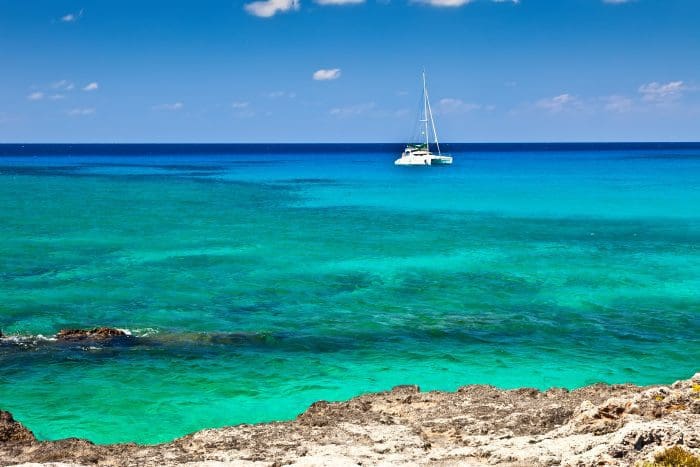
The Cayman Islands Shipping Registry is a favourite among those who own both pleasure and commercial yachts worldwide. This ship registry has been at the Port of George Town, Cayman Islands, since 1903.
There are two other ports in the Cayman Islands as well: The Creek in Canyon Brac and Bloody Bay in Little Cayman.
The Merchant Shipping Law, which was revised in 2024, is the governing legislation for all boats registered in the Cayman Islands.
The law offers many different types of yacht registration, including full registration, interim registration, provisional registration, a ship under construction registration and demise charter/bareboat registration.
An owner who is having a vessel built might find this convenient so they can register it as a boat under construction and then change to full yacht registration later.
As mentioned above, the Cayman Islands is a part of the Red Ensign Group. This means that getting your yacht registration in the Cayman Islands flags your vessel as a British Ship, granting it protection from the British Royal Navy.
Because time is crucial for so many people, the Cayman Islands Ship Registry (CISR) can also expedite the registration process for those who need to be registered immediately if they pay their expedition fee.
In addition, the CISR has representative offices in Fort Lauderdale, London, Cannes, Athens, Tokyo and Singapore, where you can have ship registry certificates issued immediately if needed.
Yachts that are not engaged in trade and are registered with the Cayman Islands as pleasure yachts are granted a License to Cruise the waters of the United States, which will allow them to enter, depart and cruise within US waters.
These vessels only need to report to US customs when entering the country or changing customs districts.
Assuming you meet all of the required qualifications, there are no restrictions or rules concerning the nationality of the master or the crew of your ship. In addition to the Cayman Islands being a tax-neutral environment, the jurisdiction provides vessel owners with banking facilities and directorship services.
Overall, vessels registered in the Cayman Islands benefit from all the privileges of the British flag, while simultaneously having the tax-free and confidentiality perks of the Cayman Islands.
2. The Netherlands Yacht Registration

Many people consider the Netherlands to be an ideal location for yacht registration because the country is flexible and straightforward, whereas most other European countries follow stricter rules and regulations.
The registration process is fast compared to that of other countries and requirements are minimal.
The process of registering under the Dutch flag is easiest if you are either an EU, Swiss, or Norwegian citizen or own a company registered in the EU.
One of the main advantages of the Netherlands is that you can be registered under the Dutch flag in as little as three days.
That’s why the Netherlands is typically preferred over countries like Italy, France and Spain where there’s a longboat registration process in addition to high registration fees.
Many yacht owners solve this problem by registering under the Dutch flag where taxes and registration requirements are minimal, allowing the whole process to be completed efficiently, assuming you meet the necessary criteria.
Boat owners do not have to be of Dutch nationality, nor do they have to have a residence in the country.
The only documents you must have are an ID card or passport and you must provide proof of ownership of your boat. Because so little documentation is needed, renewing your yacht registration is also a fairly simple process.
The process is easiest, however, for people who are Dutch, Swiss, Norwegian or have a company based in the EU.
If you do not fall under these categories, you can still register by paying a fee to have a United Kingdom Ltd., set up in your name.
The Ltd., will cost you €349 upfront and €249 every year after that. Once the Ltd. is set up, you’ll receive your registration within three to five days.
The documentation needed is still the same. It only costs about €299 for yacht registration in the Netherlands if you are an EU citizen.
It costs more for non-EU citizens, but your registration license can be delivered overnight anywhere in the world.
Those prices include everything from the taxes to the mandatory Dutch address and all the costs for shipping and consultation.
There’s also no requirement to have your boat inspected, making the vessel documentation process even simpler.
Here are the different types of yacht registration available under the Dutch flag:
- Light Registration
Light yacht registration is for people who want fast and easy registration for navigating EU waters. With light registration, you can only sail European Union waters and the length of your yacht may not exceed 24m.
- Global Registration
Global yacht registration is for yachts that will navigate outside of European Union waters, sail worldwide or engage in commercial chartering.
People with Global registration can take their vessel anywhere in the world. Global registration is also available to Swiss or Norwegian persons regardless of whether or not they have a company in the EU.
3. The Marshall Islands Yacht Registration
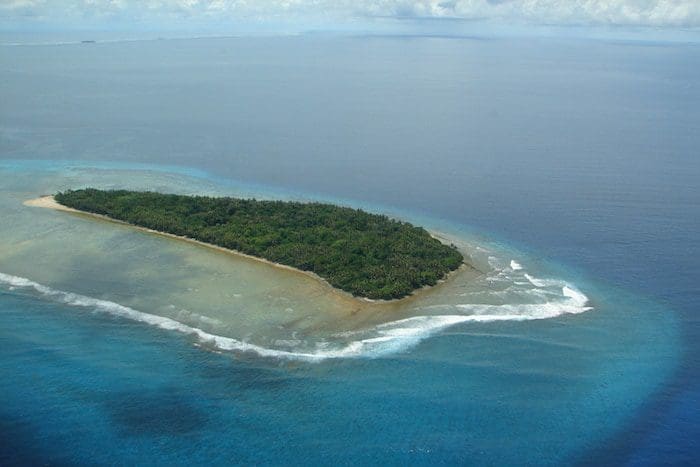
The Marshall Islands ship registry was formed in 1988. In 2001, it was expanded to allow those with commercial and private yachts to register as well, which has made the Marshall Islands a popular place to register over the last sixteen years.
The jurisdiction has also gained a lot of recognition over the years by having regional offices in major maritime cities around the world, allowing them to provide same day service to anyone – regardless of the location or time zone in which they reside.
The Marshall Islands Registry is the third-largest in the world and you can register under a one or three-year program.
You must be a Marshall Islands citizen, national or qualified foreign maritime entity to register your vessel here.
The terms ‘citizen’ and ‘national’ refer to Marshall Islands corporations, limited liability companies, partnerships and associations of individuals.
You can easily complete the process to have a Marshall Islands company registered in your name so that you can register your ship there.
Assuming you complete all the necessary documents and meet all requirements, you can have your ship registered within 24 hours. You can also register your yacht as a ‘ship under construction’ if needed.
You can obtain a US cruising permit as a boat registered in the Marshall Islands and commercially compliant yachts can charter in Europe.
In other words, you’re not confined to the waters of the Marshall Islands alone, which is convenient for those who want to see more of the world.
As long as you meet proper flag requirements, yachts measuring 18m or longer that weigh less than 500 gross tons can be chartered out for up to 84 days as a private yacht limited charter (PYLC).
In addition to being white-listed under Paris and Tokyo’s MoUs, the Marshall Islands also meets the flag criteria for a low-risk ship under the Paris New Inspection Regime.
Additionally, the Marshall Islands has been a part of the US Coast Guard’s Qualship 21 roster for more than 10 consecutive years.
The Marshall Islands Registry is low tax and respected worldwide. The country is a presidential republic in free association with the United States and enjoys similar benefits to its British Overseas Territory counterparts, making it a great jurisdiction for yacht registration.
4. Cyprus Yacht Registration

Cyprus is the third largest island in the Mediterranean after Sicily and Sardinia. The country’s ship registry ranks 10th in the world with a gross tonnage of over 21 million pounds.
A ship can be registered in Cyprus if more than 50% of the shares of the registering company are owned by a Cypriot or if your company is registered in the Republic of Cyprus.
An offshore company can also be registered in Cyprus if the company’s control is in the hands of Cypriots.
The Republic of Cyprus can easily register your company under their flag so you can register your yacht there.
There are many tax benefits that come with yacht registration under the Cyprus flag. An owner whose ship is registered in Cyprus is fully exempt from income taxes from operations in international waters.
Additionally, no tax is payable for the wages of the crew that operates in international waters. No tax is payable on any dividend received from a shipping company in Cyprus.
Cyprus has maritime offices around the world, allowing them to work with anyone anywhere at any time. Some of their main offices are located in New York, London, Rotterdam, Piraeus, Brussels and Hamburg.
Upon registering in one of these offices, you will have the benefit of flying an EU flag, which is respected worldwide. According to the EU registry, ‘Sailing under EU flags demonstrates strength and represents a strong reputation’.
Like some of the other countries we have mentioned, Cyprus has been white-listed among the Paris and Tokyo MoUs, meaning it’s a high-quality flag with low risk compared to many other countries that have been grey or black-listed.
It should also be noted that Cyprus is excluded from the ‘list of targeted flag states’, which is kept by the US Coast Guard.
Cyprus’s absence from the list means that inspections of the yacht with a Cypriot flag are kept to a minimum and they will experience no unnecessary delays when entering and leaving ports.
Types of Yacht Registration Available in Cyprus
Cyprus offers three types of registration, including provisional registration, permanent registration and parallel (bareboat) registration:
- Provisional remains in effect for 6 months; after expiration, it can only be renewed once more for 3 more months.
- Permanent yacht registration goes into effect 6 to 9 months from the date your yacht was provisionally registered.
- For parallel/bareboat registration, your ship must hoist the Cyprus flag and ‘Limassol’ must be marked as your port of registry.
Parallel-in registration lasts for two years and is renewable.
For parallel-out registration, your ship must hoist the foreign flag rather than the Cyprus flag and your port of registry must be the port of the foreign country. Parallel-out lasts for three years and is also renewable.
5. Liberia Yacht Registration
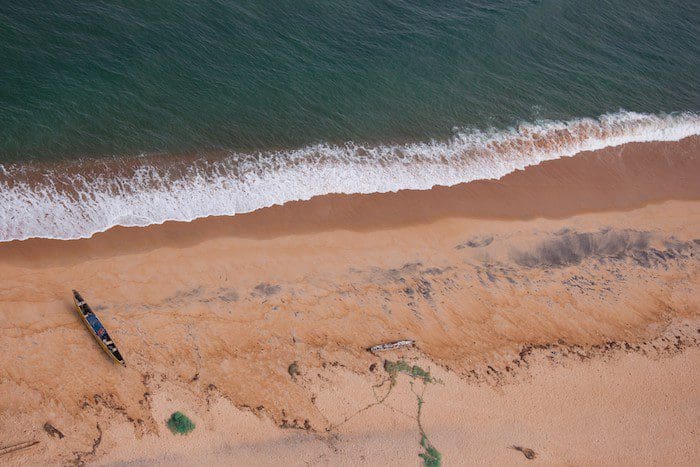
Liberia is the oldest democracy in Africa and one of the first offshore, zero-tax jurisdictions.
The Liberian ship registry is a favourite among owners of large vessels – in fact, the country has the largest registry in the world
One of the perks of Liberian yacht registration is that it’s open to any ship owner in the world and there are absolutely no restrictions on the nationality of your crew or country of construction.
This makes Liberia appealing to many ship owners who either cannot register somewhere because of their nationality or can only register by paying an additional fee.
Liberia has been white-listed on the Paris and Tokyo MoUs and has also been approved by the International Maritime Organisation and the US Coast Guard.
This, combined with the country’s other features, means that the Liberian Registry is known as ‘the world’s largest quality registry, renowned for excellence, efficiency, safety and innovative service’.
The following types of vessels can be registered in Liberia:
- Vessels under construction
- New buildings
- Vessels being transferred from other flags
- Offshore vessels
- Vessels in lay-up
- Vessels involved in international, coastal, or domestic trading.
You may also have a dual flag if your ship is bareboat registered.
The Liberian Registry is owned and operated by the United States. Additionally, service is available 24 hours a day, 7 days a week, making things very convenient for those wishing to do yacht registration under the Liberian flag.
There are over 400 nautical inspectors, so there is always someone available to attend to vessels.
Vessels registered in Liberia are taxed with a fixed fee, which depends on the tonnage of your ship but the tax is applied yearly, so there should be no surprises. It’s also worth noting that there are no taxes on operations and your profits are not assessed.
The Liberian flag is accepted in many EU countries — the United Kingdom, Germany and the Netherlands are only a few countries in the European Union that accept the Liberian flag. In addition, Liberia is highly rated for safety and accident prevention.
Liberia is recognised every year for having high standards. The country has an above-average performance in safety and accident prevention as well as in independent statistical reports.
Liberia also has a network of 100 security inspectors to inspect ships when necessary, which was implemented post-9/11.
Liberian yacht registry has also been recognised with various awards. According to information provided by the Liberian Registry website, ‘The Maritime Services Award’ is for exceptional achievement or contribution to any service sector of the Americas’ maritime industry by a company, individual or organisation.
According to Lloyd’s List criteria for this award: ‘The winner must be able to demonstrate how they have set themselves apart, going above and beyond best practice to offer the shipping industry something exceptional.’
6. Malta Yacht Registration
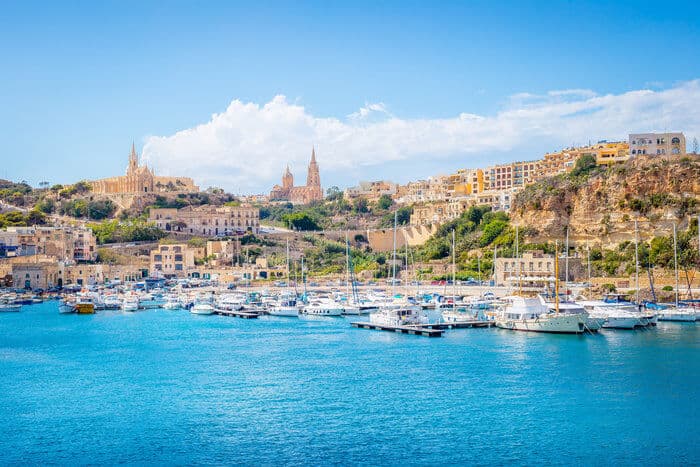
Malta’s ship registry is a top choice for yacht owners, holding the 7th largest fleet globally and the largest in the entire EU region. Malta also holds the world’s largest superyacht register.
The country has EU-compliant legislation, clear laws relating to yacht mortgages, low registration costs and is well respected across the globe.
Malta became a member of the European Union in 2004, so yacht registration here comes with the perks of sailing an EU flag, including protection by the British Royal Navy.
Like the other countries mentioned above, Malta has been white-listed, providing ship-owners with a sense of security when you go through the yacht registration process under the Maltese flag.
If you’re an EU, EEA or Swiss national, you can hold your vessel in your personal capacity. However, if you’re a non-EU, EEA or Swiss citizen, you must hold your yacht through a Maltese or foreign company.
When it comes to taxes, companies operating commercial yachts out of Malta are exempt from income tax on any income generated by the operation of their yachts in international waters.
They’re also exempt from any VAT tax on the high seas. What sets Malta apart from many other countries besides tax policy is that there are no restrictions on the nationality of the master, officers, or crew of your ship.
Another perk that Malta shares with Liberia is its round-the-clock service, so you can feel safe and secure registering in the country.
And, as long as you meet all flag requirements, any type of vessel can be registered — that means pleasure yachts, oil rigs, vessels under construction and anything in between.
When it comes to the age or trading of the vessel, boats between 10 and 15 years must pass an inspection by an authorised inspector within one month of provisional registration. Ships over 15 years old must pass inspection before being provisionally registered.
Want to enjoy the benefits of Maltese residency or citizenship? The Malta Exceptional Investor Naturalisation (MEIN) program might be for you. Learn more.
7. The British Virgin Islands Yacht Registration
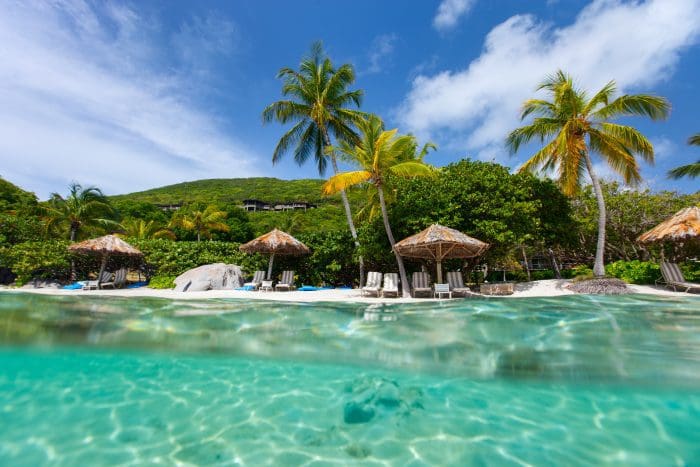
The British Virgin Islands became one of the most recent members to join the Red Ensign Group (2014). Now, the British Virgin Islands can register any type of ship of any size.
Not only that, yacht registration under the BVI flag grants access to all the ports in the world.
There are restrictions with almost all other registries when it comes to this, so the fact that a BVI flag gives you access anywhere sets the country far apart from the rest.
Another advantage that makes the jurisdiction one of the most attractive is that the British Virgin Islands is tax-neutral.
The islands are outside the scope of the EU value added tax (VAT) laws, meaning that there is no sales tax when purchasing goods or services.
As is the case with the Cayman Islands and Malta, the Red Ensign Group flag grants protection by the British Royal Navy to those vessels registered under the British Virgin Islands flag.
Similar to the other countries listed, you can register under the BVI flag even if you’re not a citizen and even if you do not own a company there. You will need to register a company in the BVI to do so, but this can be completed in a matter of hours.
When it comes to the registration process, it usually takes two to six months, meaning that it’s not as short as some of the other countries, but it’s still not too terribly long.
The British Virgin Islands has one of the most stable governments and economies in the world, which gives ship owners who register there security when compared to other countries who have more enemies or corruption within the government.
8. Panama Yacht Registration
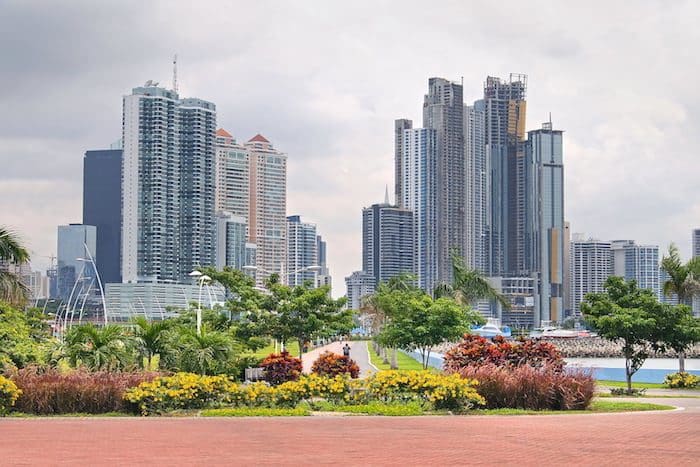
Panama is not only a popular place when it comes to offshore banking or getting a second passport, but it also holds the second-largest ship registry in the world, having over 9,000 ships registered under the country’s flag.
Most countries require a minimum vessel weight, but Panama does not. The only exception to this rule is if your ship is older than 20 years, requiring that the ship is inspected in order to be registered.
There is usually some downtime when someone transfers their ship from one flag to another, but that is not the case when you’re transferring to Panama.
Panama has a very simple transferring process. For example, numerous other countries make you dry dock for inspection and Panama does not.
Because their process is so easy, it eliminates the concern that ship and business owners have concerning downtime.
The good news for all the shipping companies, ship owners and merchant shipping companies is that you can have dual ship registry in Panama. But, if you were registered in the other country first, you must have consent from that country to register in Panama, too.
Instead of taking your ship’s size or tonnage into consideration, Panama charges a flat yacht registration fee to keep things simple.
If you are not a Panamanian or an owner of a Panamanian business, you’ll pay a flat fee of US$1,500 to register your yacht. If you are Panamanian, it costs US$1,000 to register your yacht. Once you’re registered, you will have access to Panama’s round-the-clock service.
Additionally, once you’re assigned provisional yacht registration, you have six months to provide the proper vessel documentation to transfer your provisional yacht registration to permanent registration. Your yacht registration certificate is valid for two years and renewal costs are low.
Many countries require yacht owners to pay taxes when they register their ships, but Panama does not. There are also no taxes on profit made through international trade. You do not have to pay taxes on wages for your crew members either.
The main reason people choose to register in Panama is the lack of taxes. When registering in Panama, people are legally reducing tax costs, which would not be the case if they were to register in many other jurisdictions.
Best Place to Register a Yacht: FAQs
By registering your yacht overseas, you’re likely to lower your tax bill as well as enjoy greater freedom of navigation and more lenient regulations.
The Netherlands, Cyprus and Malta are frequently listed among the best EU countries to register a yacht.
Yes, it’s a legal requirement for your yacht to be registered.
Panama, Liberia, the Cayman Islands, the Marshall Islands, Malta, Hong Kong and the United States are among the most popular countries to register a yacht.
The process differs depending on where you’re registering the yacht. Each country has different maritime authorities that handle yacht registration. There are also third-party businesses available to complete offshore yacht registrations on your behalf.
Panama, Liberia, the Cayman Islands, the Marshall Islands, Malta, Hong Kong and the United States are among the most popular countries to register a yacht.
Where to Register Your Yacht
There is no single best ship registry in the world, but there are many you can choose from to keep your investment safe.
Finding the right one for you will depend on what you value when it comes to naval protection, taxes, privacy and ease of travel.
Nomad Capitalist helps wealthy investors and entrepreneurs to ‘go where they’re treated best’, whether that’s by moving their investments offshore or relocating to a more tax-friendly country.
Our clients are paired with experts in tax, investment strategy, asset protection and immigration to execute a holistic plan as unique as their goals. Contact us to find out more about our Nomad Capitalist plans.


The Best Nomadic Lifestyle Jobs (How to Land One)
Once reserved for the most adventurous, who had the ideal job, living as a digital nomad is now the norm for many. People want to live their best life without being dependent on anything, and the idea of working and traveling the world simultaneously appeals to many. If you’re also thinking about pursuing your dream […]
Read more

Digital Nomad Lifestyle: All Pros and Cons to Keep in Mind
This article discusses the digital nomad lifestyle and ways in which it can add immense value to your life. We will also discuss why the digital nomad lifestyle isn’t for everyone. Fifteen years ago, few people could quit their full-time job to seek a remote career. Today, however, we’re living in an incredible world where […]
Read more

St Kitts Travel Guide for Families and Couples
Planning a getaway to St Kitts and Nevis? Our St Kitts travel guide for families and couples includes everything you need to know before travelling to this Caribbean paradise. We cover how to get to St Kitts, what to do there and why you should visit the islands in the first place, be it with […]
Read more




